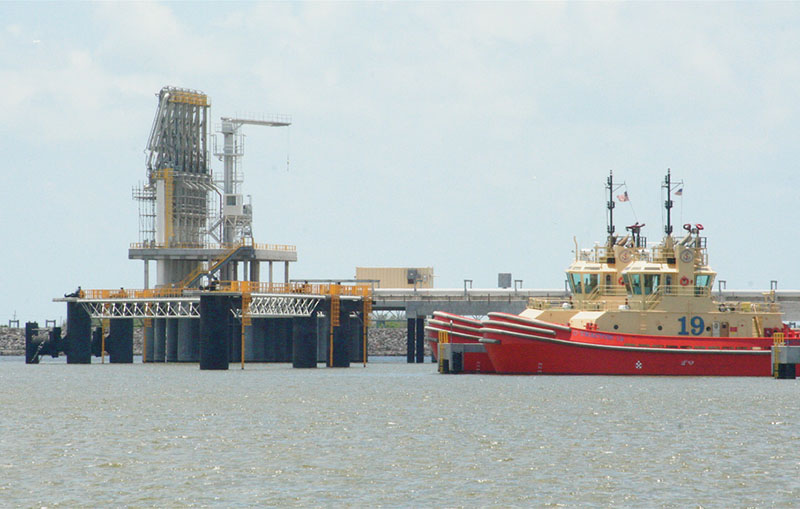(Bloomberg) — Jack Fusco, the chief executive officer of Cheniere Energy Inc., has a new priority for the company now that it’s regularly sending tankers full of U.S. shale gas abroad: streamlining.

Cheniere Energy CEO Jack Fusco.
The liquefied natural gas exporter is due for a transition that’ll move it away from the complex structure of a project developer toward a “simpler going concern,” Fusco, who joined Cheniere in May, said in an interview in New York on Tuesday. The company is also in need of an overhaul that’ll improve communication across departments and establish clearer career paths and compensation targets, he said, following a presentation at the Barclays CEO Energy-Power Conference.
Fusco’s priorities for America’s first shale gas exporter are a far cry from the expansion plans that Cheniere co-founder Charif Souki had been proposing before he was ousted as CEO in December. Souki’s departure followed disputes over strategy with the board and billionaire investor Carl Icahn, who went on to describe Souki’s plans for the LNG terminal developer as “harebrained ideas.”ChenChen
‘Better, Faster’
After placing its first gas-liquefying unit in service this year, Cheniere’s focused on making every future plant, known as a train, “better, faster and cheaper,” said Fusco, who was previously executive chairman at Calpine Corp. and served as the power generator’s CEO before that.
Cheniere has plans to build at least seven trains that’ll liquefy gas at its Sabine Pass export terminal in Louisiana and Corpus Christi complex in Texas. It’s investing in two trains at Corpus Christi and probably won’t come to a final decision on a third one there this year, Fusco said Tuesday.
Cheniere’s stock has rebounded by about 20% this year, bolstered by a rally in oil prices because LNG contracts have historically been linked to crude benchmarks. This link should continue to support demand for U.S. gas with global oil prices expected to rise, Fusco said.
Even if U.S. gas rises above $3 per million British thermal units, “we are going to be a low-cost provider of gas for the world for a long period of time,” he said.
Cheniere, which began by building gas import terminals, was caught off guard by the shale boom that flooded the U.S. with so much cheap gas that the company, along with others, scrambled to turn existing and proposed import sites into export facilities. Their dilemma now is that gas supplies are leaving the U.S. just as the global LNG market faces its own collapse amid a glut.
That hasn’t stopped Cheniere from sending U.S. gas “around the world,” said Fusco, adding that he’s traveled to Europe three times within three months on behalf of the company. Relatively cheap deliveries of LNG to Europe are “shutting the coal plants, and they are starting up gas plants just like we see in America — I don’t think that gets reported enough,” he said.
Bloomberg News by Naureen S. Malik




